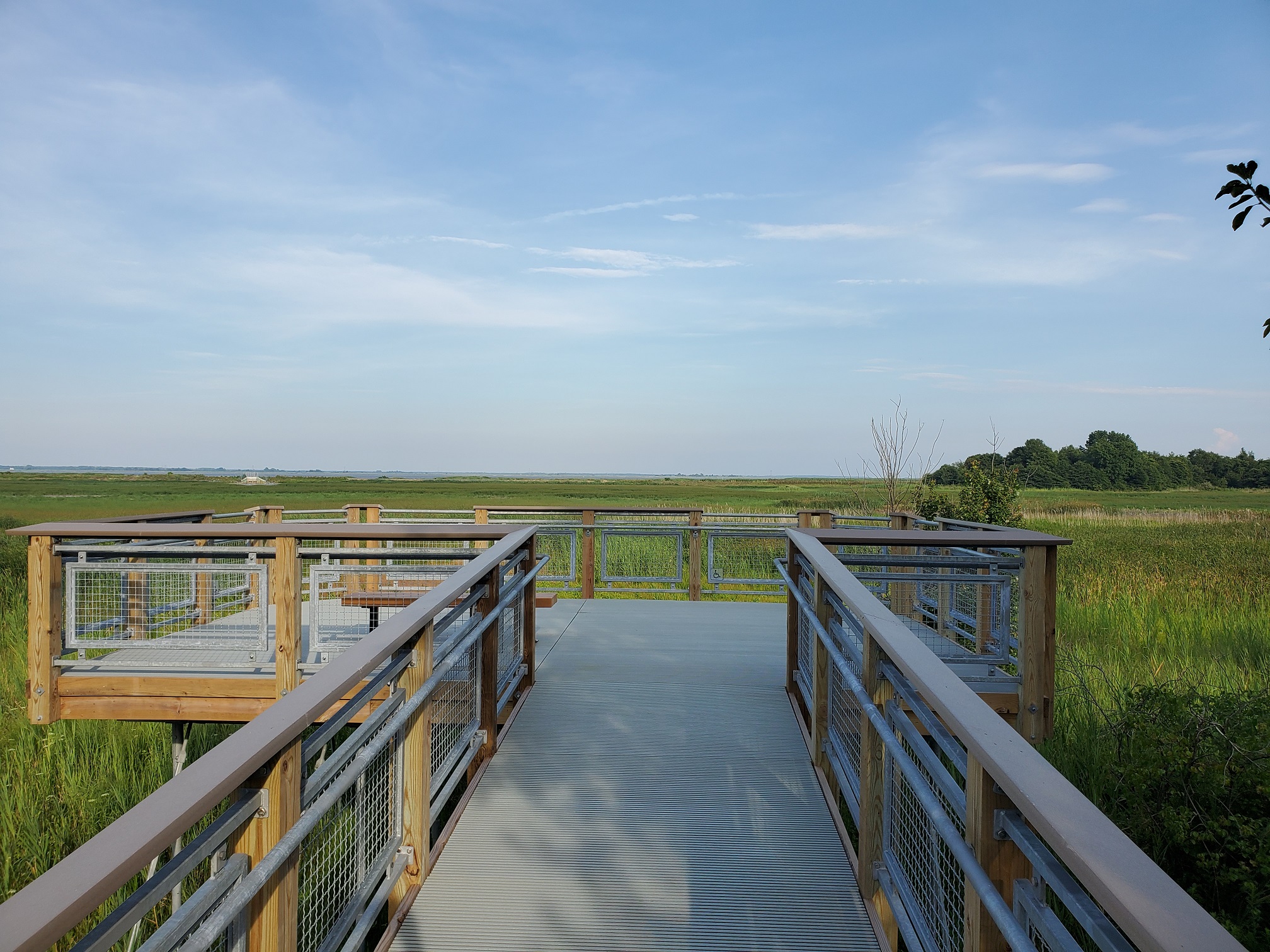Wildlife viewing is quickly becoming a favorite outdoor activity, attracting both Delaware residents and visitors who want to enjoy the splendor of the First State’s outdoor natural spaces. The Delaware Department of Natural Resources and Environmental Control provides numerous outdoor recreation opportunities on public lands, including elevated wildlife-viewing structures on several state wildlife areas managed by the DNREC Division of Fish and Wildlife.
Since 2013, the Division of Fish and Wildlife has focused on expanding outdoor recreation opportunities in state wildlife areas. With planning and public input, new wildlife-viewing structures have been constructed in the Augustine Wildlife Area near Port Penn and the Little Creek Wildlife Area east of Dover, with additional wildlife-viewing structures planned for the Ted Harvey Conservation Area near Bowers Beach and the Milford Neck Wildlife Area east of Milford.
The new structures expand upon existing wildlife viewing opportunities, including the Division of Fish and Wildlife-managed Aquatic Resources Education Center’s saltmarsh boardwalk trail located in the Woodland Beach Wildlife Area, the deck at the Division of Fish and Wildlife-managed DuPont Nature Center overlooking the Mispillion Harbor, and the Assawoman Wildlife Area’s observation tower that stands 40 feet above the wetlands.
Almost all these facilities are accessible to individuals with mobility challenges, including accessible parking, hard-packed trail surfaces and portable restrooms. Interpretive signs at a number of viewing locations help educate visitors about the wildlife they might encounter or about observed wildlife habitats. A new DNREC webpage includes more information about the elevated viewing structures, photographs of them, wildlife most likely to be seen, links to maps of a specific wildlife area where a viewing structure is located, and information about the Conservation Access Pass (CAP).
Registered motor vehicles used to access designated wildlife areas owned or managed by the Division of Fish and Wildlife are required to have and display a CAP, except at the Aquatic Resources Education Center and DuPont Nature Center. To obtain a CAP, visitors will need the registration card for the vehicle to which the pass will be assigned – with the exception of the Resident Senior Lifetime Conservation Access Pass available to Delaware residents aged 65 or older. More information about the CAP – which may be purchased online at de.gov/digitaldnrec, at the license desk in DNREC’s Dover office at 89 Kings Highway, Dover, DE 19901, or from hunting license agents statewide – can be found at de.gov/cap.

The wildlife viewing deck at the Port Penn Tract of the DNREC Division of Fish and Wildlife’s Augustine Beach Wildlife Area. /DNREC photo
Original source can be found here.
ORGANIZATIONS IN THIS STORY
!RECEIVE ALERTS


 Alerts Sign-up
Alerts Sign-up